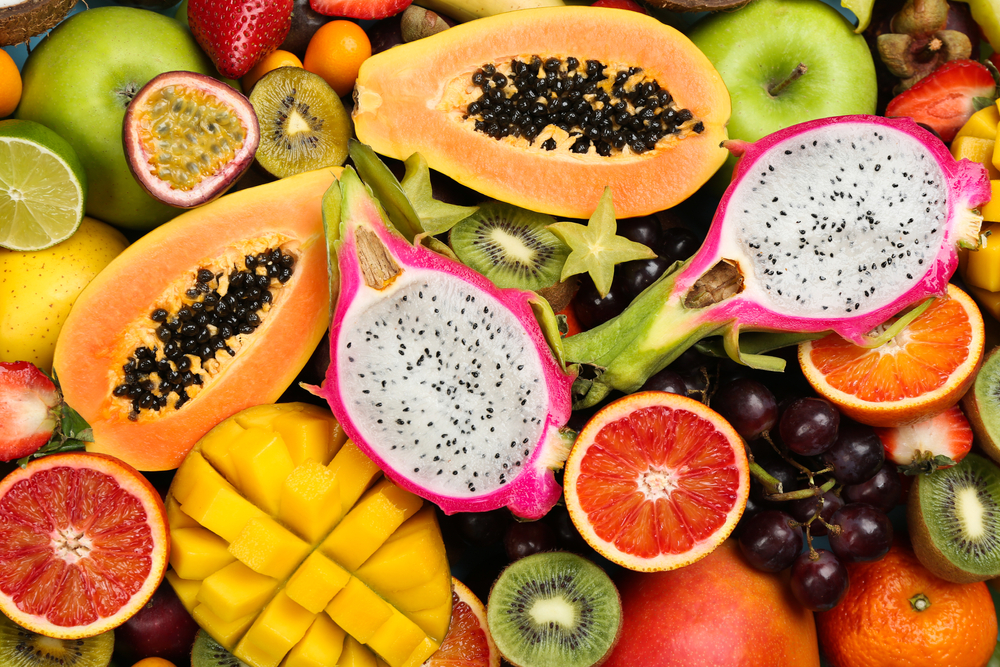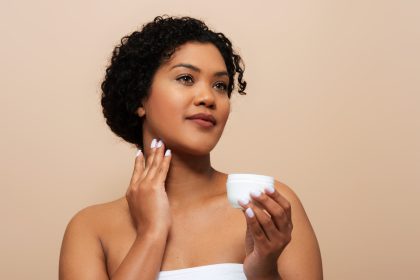You’ve probably been scrubbing your face with abrasive particles, chemical acids, or expensive exfoliating tools, but one of the most effective and gentle exfoliators might be hiding in your local grocery store’s produce section. Papaya contains powerful enzymes called papain that can dissolve dead skin cells more effectively than physical scrubs while being gentler on your skin than harsh chemical exfoliants.
The proteolytic enzymes in fresh papaya work by breaking down the protein bonds that hold dead skin cells together, allowing them to shed naturally without the mechanical damage that scrubbing can cause. This biological approach to exfoliation is not only more effective but also safer for sensitive skin and less likely to cause irritation or micro-tears.
What makes papaya enzymes particularly appealing for skincare is their selectivity, they primarily target dead and damaged skin cells while leaving healthy tissue intact. This precision makes papaya a superior alternative to traditional exfoliators that can damage healthy skin along with the dead cells they’re meant to remove.
Papain enzymes work like biological micro-scissors
Fresh papaya contains high concentrations of papain, a proteolytic enzyme that specifically breaks down proteins found in dead skin cells. Unlike physical scrubs that tear away skin cells through friction, papain works at the molecular level to dissolve the keratin proteins that make up the outermost layer of dead skin.
This enzymatic action is incredibly precise, targeting only the proteins in dead, keratinized cells while leaving living skin cells untouched. The result is smoother, brighter skin without the redness, irritation, or micro-damage that often occurs with traditional exfoliation methods.
The enzyme activity in papaya is strongest when the fruit is fresh and ripe, making homemade papaya treatments more effective than many commercial products that use processed or synthetic versions of these enzymes. Fresh papaya also contains complementary compounds that enhance the exfoliating effects.
Papain works gradually and gently, making it ideal for people with sensitive skin who can’t tolerate acid-based exfoliants or abrasive scrubs. The enzyme action continues working for several minutes after application, providing thorough exfoliation without harsh immediate effects.
Natural fruit acids enhance the exfoliating power
In addition to papain enzymes, papaya contains natural alpha hydroxy acids including malic acid and tartaric acid that provide additional gentle exfoliation and skin brightening benefits. These natural acids work synergistically with the enzymes to create a comprehensive exfoliating treatment.
The combination of enzymatic and acid exfoliation in papaya provides both immediate surface smoothing and deeper cellular renewal that can improve skin texture, reduce fine lines, and enhance the absorption of other skincare products applied afterward.
Papaya also contains vitamin C, which provides antioxidant protection while supporting collagen production and skin repair processes. This means that while the fruit is removing dead skin cells, it’s simultaneously supporting the health and renewal of the new skin being revealed.
The natural fruit acids in papaya are gentler and more balanced than synthetic acids used in commercial exfoliants, reducing the risk of over-exfoliation or chemical burns while still providing effective skin renewal benefits.
Anti-inflammatory compounds soothe while exfoliating
Fresh papaya contains anti-inflammatory compounds including choline and lycopene that help calm skin irritation and reduce redness while the exfoliating process is taking place. This makes papaya particularly beneficial for people with sensitive or inflamed skin.
The anti-inflammatory properties help prevent the irritation that often accompanies exfoliation, allowing for more frequent use and better results without the downtime associated with harsh exfoliating treatments. This makes papaya ideal for maintaining smooth skin consistently.
Papaya’s natural anti-inflammatory compounds also help reduce acne-related inflammation while the enzymes help unclog pores and remove dead skin cells that can contribute to breakouts. This dual action makes it particularly effective for acne-prone skin.
The soothing properties of papaya mean that it can be used on areas of the body where traditional exfoliants might be too harsh, such as the delicate skin around the eyes or on areas affected by conditions like keratosis pilaris.
Simple application methods maximize effectiveness
Using fresh papaya as an exfoliator is remarkably simple and requires no special equipment or complicated preparation. Simply mash fresh, ripe papaya into a paste and apply it directly to clean skin, allowing the enzymes to work for 10-15 minutes before rinsing with cool water.
For enhanced effects, you can add a small amount of honey to the papaya paste, which provides additional antibacterial and moisturizing benefits while helping the mixture adhere to skin better. The honey also contains its own gentle exfoliating enzymes that complement those in papaya.
The ripeness of the papaya affects enzyme activity, with fully ripe fruit providing the highest concentrations of active papain. Look for papaya that yields slightly to pressure and has a sweet, tropical scent, indicating optimal enzyme levels for skincare use.
Frequency of use can vary based on skin sensitivity and needs, with most people finding that 2-3 times per week provides optimal results without over-exfoliation. Start with once weekly to assess your skin’s tolerance before increasing frequency.
Targeted treatments address specific skin concerns
Papaya enzymes are particularly effective for treating hyperpigmentation and dark spots because they help remove the surface layers of discolored skin while the vitamin C content helps inhibit future melanin production. Regular use can gradually lighten sun spots and acne scars.
For acne-prone skin, papaya’s combination of pore-clearing enzymes and anti-inflammatory compounds makes it an excellent alternative to harsh acne treatments that can over-dry skin. The gentle exfoliation helps prevent clogged pores without triggering increased oil production.
People with keratosis pilaris, the rough, bumpy skin texture that commonly appears on arms and legs, often find papaya enzymes more effective than physical scrubs at smoothing these areas without causing irritation or worsening the condition.
The anti-aging benefits of papaya come from its ability to promote cellular turnover while providing antioxidant protection, helping to reduce fine lines and improve skin texture over time with consistent use.
Safety considerations and skin compatibility
While papaya enzymes are generally gentler than other exfoliating methods, they can still cause sensitivity in some people, particularly those with latex allergies who may also react to papain enzyme. Always perform a patch test before applying papaya to larger areas of skin.
Fresh papaya should never be applied to broken, irritated, or recently shaved skin, as the enzymes can cause stinging or excessive irritation on compromised skin barriers. Wait until skin is fully healed before using any enzymatic exfoliant.
Overuse of papaya enzymes can lead to over-exfoliation just like any other exfoliating method, resulting in redness, sensitivity, and increased susceptibility to sun damage. Monitor your skin’s response and adjust frequency accordingly.
Sun protection becomes particularly important when using any exfoliating treatment, including papaya enzymes, as newly revealed skin is more vulnerable to UV damage. Always follow papaya treatments with broad-spectrum sunscreen during daytime use.
Commercial products versus fresh fruit effectiveness
While many commercial skincare products contain papaya enzymes, fresh fruit typically provides higher concentrations of active enzymes and complementary compounds that enhance effectiveness. The processing and preservation required for commercial products often reduces enzyme activity.
However, commercial papaya enzyme products offer consistency and convenience that fresh fruit cannot match, along with stabilized formulations that may be better tolerated by very sensitive skin. The choice between fresh and commercial depends on individual needs and preferences.
When choosing commercial products, look for those that list papain or papaya extract high in the ingredient list and avoid products with harsh additives that might counteract the gentle nature of enzyme exfoliation.
Some people find that alternating between fresh papaya treatments and commercial enzyme products provides the best balance of effectiveness and convenience while preventing over-exfoliation from too-frequent use of either method.
The key insight is that papaya enzymes represent a return to gentler, more natural approaches to exfoliation that work with your skin’s biology rather than against it, providing effective results without the harsh side effects associated with many modern exfoliating methods.













